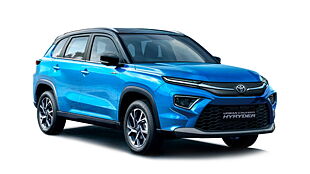
Mahindra has launched the Scorpio with the latest Intelli-Hybrid technology for the Indian market with the 2.2-litre diesel engine option. We dig deeper into the Intelli-Hybrid to know what exactly it offers over and above the existing Micro-Hybrid technology for the Indian car buyer.
The Intelli-Hybrid is a mild hybrid technology. What Intelli-Hybrid does is that it assists the crank at lower revs to reduce engine load, which helps in lowering the fuel consumption. To achieve this, the beefed up alternator doubles up as a motor at lower revs to drive the engine crankshaft. At higher revs, it acts as a generator to produce electricity to charge the batteries and power the electrical components of the car. To deliver the required electric power, the Scorpio now gets a higher capacity battery. Unlike full hybrids, the Scorpio cannot run only on electricity and has to have the engine powering the wheels at all times. Maruti uses a similar technology in the Maruti Ciaz sedan as well as the Ertiga and calls it the Smart Hybrid Vehicle System (SHVS).
The Micro-Hybrid technology in the Scorpio is essentially a start-stop technology. When the car comes to a halt and the driver shifts the car into neutral gear and releases the clutch, the engine shuts down. When it is time to move and the driver presses the clutch again to shift into gear, the engine gets cranked automatically thus saving the amount of fuel during stopover. The Intelli-Hybrid has the Micro-Hybrid technology embedded in its functioning. It also uses regenerative braking to improve the energy efficiency of the powertrain.
For everyday users, the fuel economy figures have improved by seven per cent – 16.36kmpl for the 2WD variants and 16.20kmpl for the 4WD variants, almost 1kmpl over the standard 2.2-litre engine. You can also switch off the Micro-Hybrid, but the crank assist and regenerative braking will continue to work in the background. Also, the prices have not been hiked in spite of the added tech and that may also be because of the tax sops available for hybrids under the FAME initiative by the government of India.
Since the technology is intertwined with the basic functioning of the engine, it cannot be retrofitted on existing cars. While Mahindra refuses to comment on the application of this technology to other cars, the XUV500 which runs the same engine would ideally be next in line to get Intelli-Hybrid. It would certainly be interesting to see if this technology trickles down to other Mahindra engines, making them more efficient.

![Mahindra Scorpio [2014-2017] Image Mahindra Scorpio [2014-2017] Image](https://imgd.aeplcdn.com/272x153/cw/cars/mahindra/scorpio.jpg?q=80)





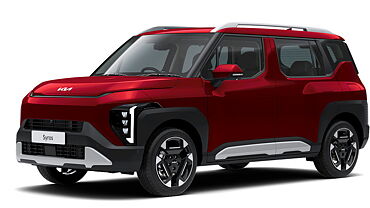
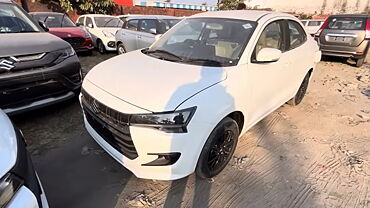





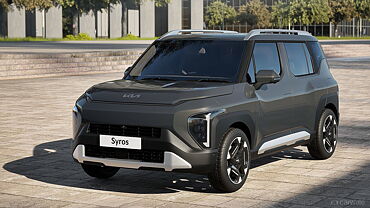

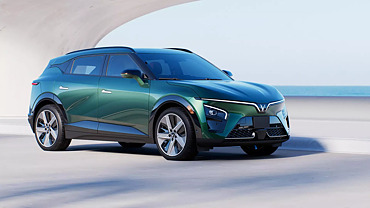
![Mahindra Scorpio [2014-2017] Front View Mahindra Scorpio [2014-2017] Front View](https://imgd.aeplcdn.com/199x112/ec/19/43/14236/img/m/Mahindra-Scorpio-Front-view-50577_ol.jpg?v=201711021421&q=80)
![Mahindra Scorpio [2014-2017] Right Front Three Quarter Mahindra Scorpio [2014-2017] Right Front Three Quarter](https://imgd.aeplcdn.com/199x112/ec/19/43/14236/img/m/Mahindra-Scorpio-Right-Front-Three-Quarter-30696_ol.jpg?v=201711021421&q=80)
![Mahindra Scorpio [2014-2017] Right Front Three Quarter Mahindra Scorpio [2014-2017] Right Front Three Quarter](https://imgd.aeplcdn.com/199x112/ec/19/43/14236/img/ol/Mahindra-Scorpio-Right-Front-Three-Quarter-30701.jpg?v=201711021421&q=80)
![Mahindra Scorpio [2014-2017] Dashboard Mahindra Scorpio [2014-2017] Dashboard](https://imgd.aeplcdn.com/199x112/ec/19/43/14236/img/ol/Mahindra-Scorpio-Dashboard-31932.jpg?v=201711021421&q=80)
![Mahindra Scorpio [2014-2017] Steering Wheel Mahindra Scorpio [2014-2017] Steering Wheel](https://imgd.aeplcdn.com/468x263/ec/19/43/14236/img/ol/Mahindra-Scorpio-Steering-Wheel-31940.jpg?v=201711021421&q=80)







